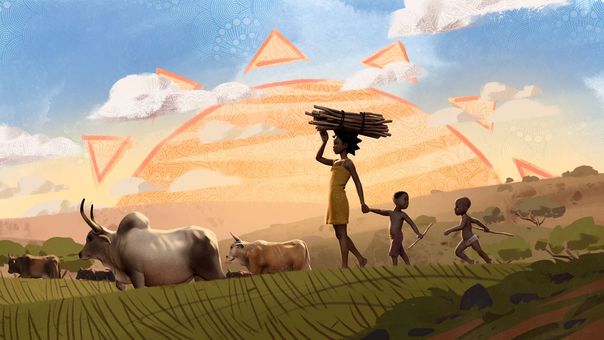Women, let’s do this ourselves
By Djia Mambu, Nthabiseng Mosieane, Wilfred Okiche and Domoina Ratsara

Looking ahead: Still from the film LIYANA, produced by Thandie Newton and co-directed by Swaziland’s Amanda Kopp.
Globally, only 7% of the top 250 films of 2016 were directed by women. Of the top 100 films of the same year, barely 30% of all protagonists were female. That’s where women in the film industry find ourselves and the bottom line is that the patriarchy is not miraculously going to disassemble itself and rebuild an industry that is more equitable, especially for young black women entering it. That work women will have to do ourselves.
That was the lesson that we, the Talent Press team, have taken away from the women-led Films discussion at the 38th Durban International Film Festival (DIFF). We were inspired by the session led by American guest Tilane Jones, who has built a company called Array, an independent film distribution business that foregrounds films by and about women of colour.
But we should not underestimate how hard that work will be. This time last year at DIFF, a group of African and diaspora women in the industry called a meeting to discuss what to do about the inequalities and challenges facing women film professionals. SWIFT – Sisters Working in Film and Television – was born as an organisation with the goal of lobbying and advocating to increase the presence of women in our industry.
But the fact remains that at DIFF this year, even though half the films in competition across all categories are directed by women, the general selection remains a man’s game. Barely a quarter of the features and less than half of the documentaries are directed by women – and let’s not even talk about producers and distributors.
But the move has been made and the landscape is shifting. This year the festival has decided to present strong women-led films to set a new industry standard. The new DIFF manager is a woman, Chipo Zhou, former Assistant Festival Director of the International Images Film Festival for Women and former member of the board of the Women Filmmakers of Zimbabwe. DIFF signed a new international partnership with Caribbean Tales Media Group to create an opportunity for female South African filmmakers to collaborate and establish creative relationships that stimulate the growth of women in the industry. Phew!
It’s only once we have this presence that we can start looking properly at the complexity of women’s voices in the films that reflect our lives. This year’s opening film, SERPENT, was directed by a South African woman with a lead character who is neither a sex worker nor a superwoman, and not just the wife/sister/mother/girlfriend of a leading man. That said, she turns out to be an unfaithful wife, a “dirty girl” betraying her poor husband. That made us sigh. According to Jones, there is no story that cannot be told just as powerfully by a woman. But women are not being let into the club. That has to change and we will have to affect that change by building networks for women-led films and supporting one another to see new films brought to our screens. It feels like DIFF is taking a fresh new breath when it comes to women in film, but we need to do more than talk. We need to work.

